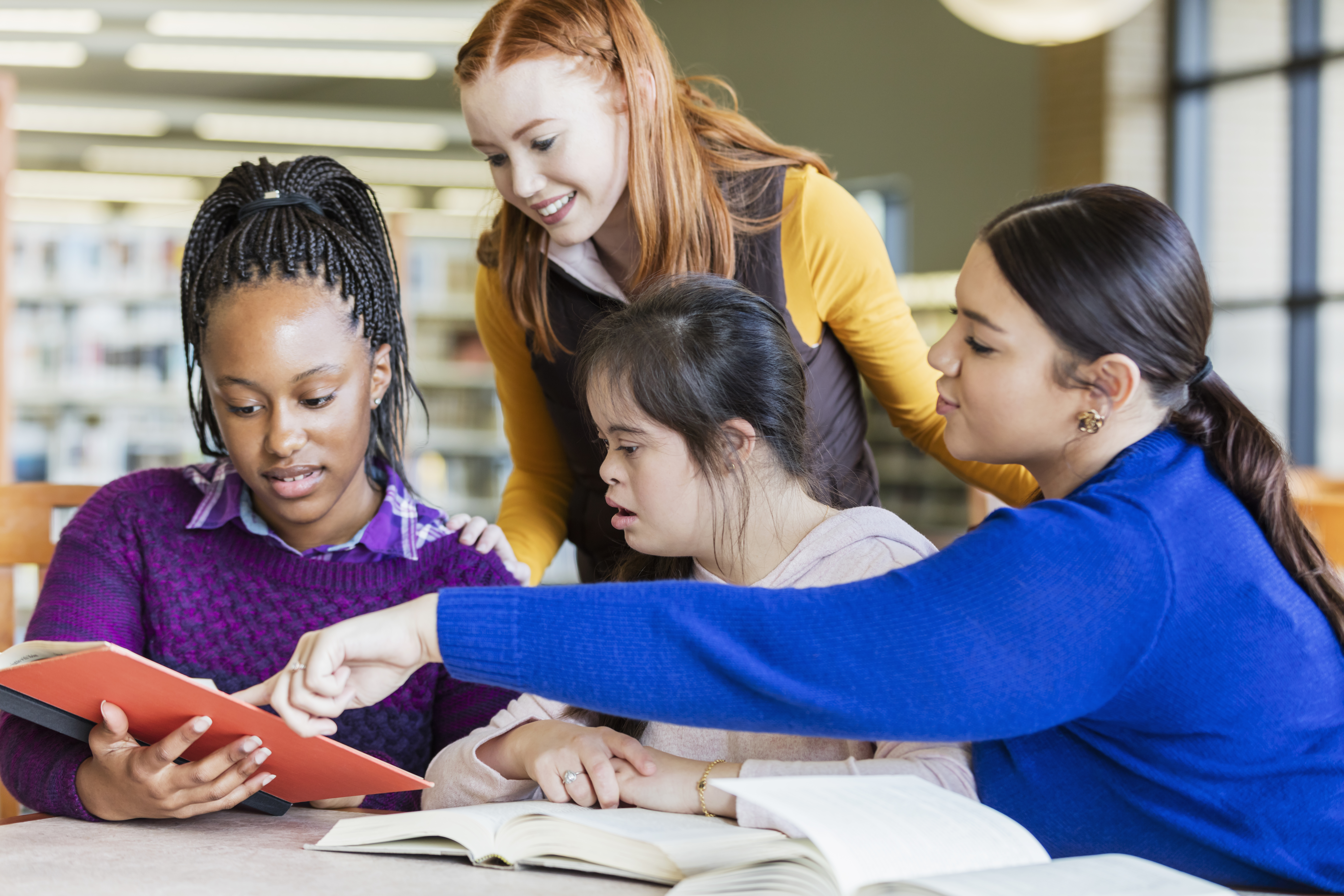
The free tools and resources below have been specially selected to help you:
- develop an awareness of inclusive practices to be able to create a safe, respectful and supportive environment where all learners can reach their full potential
- understand the diverse needs of learners – including marginalised learners and those with special educational needs – and use appropriate pedagogical strategies to address the challenges they face
- choose and/or create appropriate resources and materials that foster inclusivity and remove barriers to allow all learners to feel represented and valued.
There is no set order for the resources below. Choose what to do according to the time you have and the topics that are most interesting for you.
- Video: What makes an inclusive teacher? (5 minutes)
In this video, Susan Douglas focuses on the qualities of an inclusive teacher. She shares what the beliefs of an inclusive teacher are, as well as how to put these into action in the classroom.
- Video: How models of disability can support learners (6 minutes)
In this video, Susan Douglas shares the medical and social models of disability. She then applies these models to practical scenarios within the classroom.
Click here to watch all six videos in the English teaching talks inclusion series
- Article: What is inclusion and how do we implement it? (10 minutes)
In this article, Varinder Lekh explains what is meant by inclusive practices, why they are important and how you, as teachers, can promote inclusivity in your classrooms.
- Article: Teaching English to learners with special educational needs (10 minutes)
In this article, Marie Delaney breaks down some of the myths surrounding teaching learners with special educational needs (SENs) and offers advice and tips on how to establish an inclusive classroom.
- Article: Raising awareness of diversity in the language classroom (10 minutes)
In this article, leading inclusivity expert Anne Margaret Smith shares her ideas on how inclusive cultures can be established in our classrooms, with practical suggestions on how awareness-raising activities can be built into the curriculum.
- Podcast: How can I ensure my teaching is inclusive? (30 minutes)
In this podcast (series 1: episode 3), teachers involved in the British Council's Teaching for All programme in South Africa share their approaches to promoting inclusivity, particularly in diverse communities, and Anne Margaret Smith explains how these strategies can be adapted and adopted in different teaching contexts.
- Webinar: Raising awareness of LGBTQIA+ issues in the classroom (60 minutes)
In this webinar, Katherine Reilly, the first open trans educator in Greece, explores why English language teachers committed to diversity, equity and inclusion (DEI) must engage all learners, regardless of gender or sexual orientation. She also explains how to identify and enhance teaching materials to foster inclusive practices and promote a safe and welcoming learning environment.
As you watch the webinar, make notes: which of these ideas could you use with your classes, and why?
After watching the webinar, share your answer to the discussion question in the comments section below.
If you watch the recording and comment on it, we'll be happy to send you the link to an attendance certificate for the session.
Click here to watch all three webinars from the breaking down barriers mini-event
- Webinar: How English language teaching can empower asylum seekers and refugees (60 minutes)
This webinar showcases the work done on the Transitions programme in Hong Kong, for refugees and asylum seekers. It presents both research and practical classroom-based guidance for anyone interested in teaching and supporting the refugee and asylum-seeking community.
Click here to watch all four webinars from the inclusion in the classroom mini-event
- Lesson plans (30–60 minutes)
Susan laughs (A1 level – primary)
A series of activities and worksheets to accompany Susan laughs, a storybook that aims to raise awareness of children with disabilities. Learners make a personalised or class book based on the story and give a presentation. It forms part of the Promoting diversity through children's literature series, produced by the British Council Teaching Centre in Paris.
Susan laughs teaching materials
Starting a new school (B1 level – secondary)
In this lesson, learners are encouraged to develop their listening skills while exploring themes of inclusion and empathy as they listen to different teenagers talking about their experiences of starting a new school.
Starting a new school teaching materials
The challenges of being a migrant (C1 level – older teens/adults)
Based on themes and images from the OPENCities Project, this lesson encourages learners to talk about the problems and challenges they might face as a migrant going to Belfast, before listening to the true stories of five migrants talking about their own experiences of moving to Belfast.
- Workbook: Using inclusive practices
If you want to develop further in Using inclusive practices, this workbook will help you take your skills to the next level. It's designed to help you create a regular learning habit and apply what you've learned in the classroom. You'll find an overview of the theme and recommended learning materials. You'll also find support to reflect on and personalise your learning. You can use the workbook in different ways – do what works for you! We hope you find it beneficial.
Click here to access the workbook